|
Words About Binoculars You May Encounter. Wörter über Ferngläser, die Sie Treffen Können. Mots sur les Jumelles que Vous Pouvez Rencontrer. Слова о биноклях, которые вы можете встретить. あなたが遭遇するかもしれない双眼鏡についての言葉. Ord om Kikare du Kan Möta . Woorden Over Een Verrekijker die u Misschien Tegenkomt. Palabras Sobre Prismaticos con los que Puede Encontrarse. Parole sul Binocolo Che Potresti Incontrare. |
|
“BaK4”: type of Barium Crown glass used for prisms. From German word “Baritleichkron”. See page INTRODUCTION #1 . “BaK7”: type of Barium Crown glass used for prisms. From German word “Baritleichtkron”. “See page INTRODUCTION #1 . “Blickwinkel”: German word for “angle of view”, usually followed by degrees of angle “Gesichtfeld””: German word for “field of view”, usually followed feet at 1000 yards, or meters at 1,000 meters “Kabushiki–Kaisha or K.K. ”: Japanese Rōmaji word for “company/corporation” “Kōgaku”: Japanese Rōmaji word for “optical” “Kōgyō”: Japanese Rōmaji word for “industries “Leichtmetall”: German word for light alloy metal, such as aluminum or zinc alloys “M Type”: Mikron Type (compact porro prism with prisms configured so objectives are closer together than oculars) “Mehrfach Vergütet”: German for “multi coated” [optics] “Optique Traitée”: French for “coated optics” “Seisakujo” Japanese Rōmaji word for “factory” ‘Tag-Nacht” German for “day-night” “Traitement Multicouche”: French for multicoated [optics] “Vergütete”: German word for “coated” “Vergütete Optik”: German phrase for “coated optics” or “coated lenses” “Voll Vergütete”: German phrase for “fully coated” “WaA(plus number)” German army 20th military inspection code/ Waffenamt (not on civilian or Japanese binoculars) “Weitwinkel”: German word for “wide angle” |
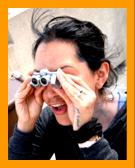
|
Binoculars Abbreviations Database (Not Companies). Fernglas: Datenbank der Abkürzungen (Nicht Firmen). Jumelles: Base de Données d'Abréviations (Pas d'Entreprises). Бинокль: база данных сокращений (не компаний). 双眼鏡:略語 のデータベース(会社ではない. Kikare: Förkortningsdatabas (Inte Företag). Verrekijker: Database met Afkortingen (Geen Bedrijven). Binoculares: Base de Datos de Abreviaturas (No Empresas). Binocolo: database di abbreviazioni (non aziende). |
|
A is rubber A rmored AFOV is A ngular F ield o f V iew AG is A r g entium coated prisms AL is Aluminum Alloy AR Coated is A nti R eflection Coated ARD is A nti R eflective D evice (such as KillFlash® objective screens) AaF is Barium Flint Glass BaLK/BaCL Schott/Hoya names for Light Barium Crown Optical Glass BaK/BaC Schott/Hoya names for Barium Crown Optical Glass from Ba ritleich k ron BaK4/BaC4 Schott/Hoya names for Barium Crown Optical Glass type 4 BaK7/BaC7 Schott/Hoya names for Barium Crown Optical Glass type 7 BaSF/BaFD Schott/Hoya names for Dense Barium Crown Optical Glass BCF is B ausch & Lomb type configuration/design C enter F ocus BGA is B ausch & Lomb type rubbered G ummi a rmerung [German for rubber armor] BI is B rightness I ndex BIF is B ausch & Lomb type eyepiece I ndependent F ocus BK7 Borosilicate Crown Glass CPO Japanese export only marking D is D ach [German designation for roof prism] DCF is D ach [German designation for roof prism] C enter F ocus ED is E xtra-low D ispersion glass EP is a Japanese export only marking FC is F ully C oated lenses FL is F lourite or Flouride coated L enses FMC is F ully M ulti C oated lenses F.O.V. is F ield O f V iew GM is G u m mi a rmerung the G erman word for rubber Armored H are H -body type roof prism binoculars HD is H igh D efinition as a performance description I.F.C. is I ndependent F ocus C oated I.F. Coated is I ndependent F ocus Coated IPD is I nter p upilary D istance I.S. is I mage S tabilizing I.S.B. are I mage S tabilized B inoculars JTII is J apan T elescopes Inspection I nstitute (passed stickers and hand tags) LRB is L aser R angefinder B inoculars LW is L ight W eight MC is M ulti C oating or M ulti C oated lenses M.C.F. is M icron design C enter F ocus [reverse porro prism design] MG is Magnesium alloy M.I.F . is Mi cron [design] I ndependent F ocus [reverse porro prism design] M.L.C. is M ulti L ayered C oating MOA is M inute o f A ngle M TYPE is M icron (or M ikron) Type (compact porro prism) NVB is N ight V ision B inoculars NVD is N ight V ision D evice OD is O bjective D iameter RBI is R elative B rightness I ndex RF is R ange F inder or R ange F inding (including stadia grid) SMC term for fully multi coated optics SOA is S econd of A ngle SWA is S uper W ide A ngle W is W ide Angle WA is W ide A ngle WF is W ide F ield UCF dual axis poro prism binoculars VM is V ariable M agnification WFMC is W ide F ield M ulti C oated WP is W ater p roof XW is E x tra W ide Angle XWA is E x treme W ide A ngle ZCF is Z eiss [ design] C enter F ocus ZIF is Z eiss [ design] I ndependent F ocus |
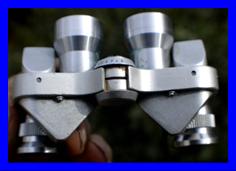

|
Japanese External Reverse Porro Prism Binoculars. Binoculars MUSEUM |
|
Binoculars: Some Musings about Size and Magnification . Ferngläser: Einige Gedanken über Größe und Vergrößerung. Jumelles: Quelques Réflexions sur la Taille et le Grossissement. Бинокль: некоторые размышления о размере и увеличении. 双眼鏡: サイズと倍率について. Kikare: Vissa Museringar om Storlek och Förstoring. Binoculares: Algunas Reflexiones Acerca del Tamaño y la Ampliación. Binocoli: Alcuni Musing Circa Dimensione e Ingrandimento. |
|
All people have inherent preconceived patterns of thinking, which we apply to our expectations. This allows to make useful suppositions about new things in our interactions with the world. For example we generally expect larger to equal more powerful. Bigger animal, bigger truck, bigger piece of equipment, bigger gun: our expectation is that substantially bigger probably means more powerful. As this is often the case, the assumption is reinforced. For plumbing pipe and optics a bigger diameter does usually result in more flow (liquids in the first instance and light/image transmission for the latter). But while it may seem counter intuitive, with binoculars and with optics, the relative size and length are not particularly accurate indicators of relative power (magnification). We have an odd relationship regarding the appeal of binoculars, because they offer a mechanical enhancement of one of our most developed primary senses (sight). They create an improved version of ourselves with greater ability, and this results in some singular behaviors in our interactions with binoculars. For example if you set out a pair of binoculars, it is almost as if people can’t resist picking them up and looking through them, even when there is nothing to look at, or when it is by people with so little interest in binoculars that they do not to know which end to look through, and also by people who own binoculars and have no logical need or expectation of reward in peering through every random pair they encounter. I have around 1,400 pairs of binoculars and still have to stop myself from reflexively picking up and looking through junky binoculars of no real interest that I encounter. By comparison if you put out a pair of scissors people have comparatively little compulsion to “try them”. To give another example, if you hand people a pair of binoculars with a smile without saying anything, most people will reflexively look through them (even strangers). Hand them some other object and they just ask questions: “Why are you handing me this?” “What is this for?” “Who are you?” Anyway before you run around trying behavioral experiments, lets have some visual fun with how the size of binoculars has little relationship to their magnification in a way that shows off interesting non miniature binoculars in the collection (that the website is not really about) by comparing them to miniature Japanese binoculars ) Die Größe des ein Fernglas ist nicht zwangsläufig ein Indikator für die Leistung der Vergrößerung. Auf dem Foto alle Ferngläser haben die gleiche Vergrößerung. La taille d'une paire de jumelles est pas nécessairement révélateur de leur puissance de grossissement. Sur la photo toutes les jumelles ont le même facteur de zoom. Размер бинокль не обязательно свидетельствует о их увеличение. На фото все бинокль имеют то же увеличение. El tamaño de un par de binoculares no es necesariamente indicativo de su ampliación en la foto todos los prismáticos tienen la misma ampliación. La dimensione di una coppia di binocoli non è necessariamente indicative del loro ingrandimento. |
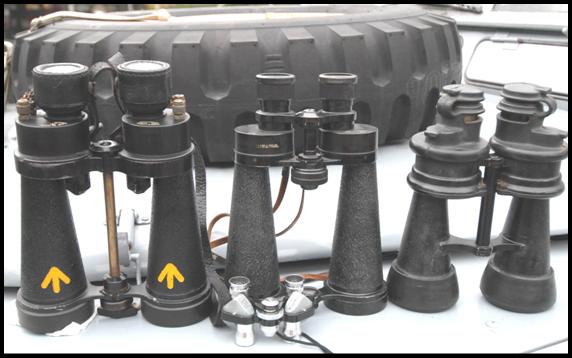
|
Various binoculars including miniature binoculars that have exactly the same 7x power or magnification. Front Row Left to Right: Japanese civilian market 7x18 CF reverse porro prism miniature binoculars. Second Row L-R: WWII British Barr and Stroud CF41 7x 50 IF military property broad arrow marked Naval binoculars with internal filters and desiccant ports; British Barr and Stroud mid century 7x50 CF civilian binoculars without filters (Barr and Stroud is a manufacturer in Scotland); and WWII BEH Leitz German military Kreigsmarine Naval 7x50 IF (Schnellboot /E boat/ fast boat and U-boat/ submarine) rubber armored naval binoculars with desiccant ports. All binoculars are the same 7 power magnification. Alle Ferngläser sind die gleichen 7-facher Vergrößerung. Toutes les jumelles sont les mêmes 7 grossissement. Все бинокли же увеличение 7 мощность. すべての双眼鏡は、同じ 7 倍 の拡大である. Alla kikare är samma 7 power förstoring. Todos los binoculares son la misma ampliación de potencia 7. All b inoculars: collection of Mark Ohno. With reference assistance from “Militärische Ferngläser und Fernrohre in Heer , Lufwaffe und Marine” by Hans Seeger. (excellent German/English bible of military binoculars). |
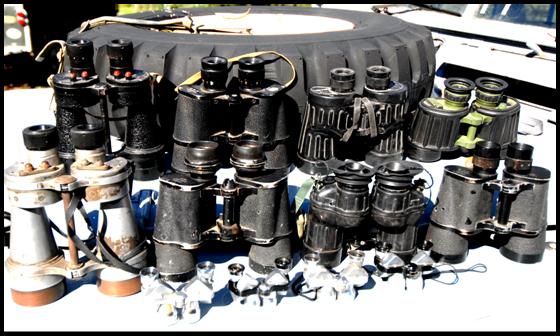
|
More binoculars including miniature binoculars that are the same 7x power. Front Row left to right: Cricket 7x18 IF binoculars; Muse Tokyo 7x15 IF binoculars; Windsor 7x18 IF binoculars; Yoshida Thorobred 7x18 IF binoculars. Second Row L-R: 1943 military NIL (Nottingham Instruments Ltd) #5 Mk IV 7x50 IF binoculars with DD/ broad arrow Australian Dept of Defense property marks; 1943/1944 BLC code/Carl Zeiss Jena 7x50 IF Dienstglas military Kreigsmarine Naval binoculars with special eyecups and long eye relief for gas mask use; 1970’s Avimo British military L11A1 7x42 IF binoculars; WWII BLC code/Carl Zeiss Jena Dienstglas military 7x50 IF binoculars. Third Row L-R: WWII RL/Ross London #5 MkIV 7x50 IF military binoculars with desiccant caps; transitional Nippon Kogaku marked plus Nikon marked 7x50 IF rubber armored civilian binoculars; 1968-1981 NVA Nationalen Volksarmee 7x40 IF German rubber armored military binoculars with IR/ infra red illumination detector. All binoculars are the same 7 power magnification. Alle Ferngläser sind die gleichen 7-facher Vergrößerung. Toutes les jumelles sont les mêmes 7 grossissement. Все бинокли же увеличение 7 мощность. すべての双眼鏡は、同じ 7 倍 の拡大である. Alla kikare är samma 7 power förstoring. Todos los binoculares son la misma ampliación de potencia 7 All binoculars collection of Mark Ohno |
|
More binoculars including miniature binoculars that have exactly the same 7x power or magnification. Front Row left to right: Japanese civilian market Sakura 7x18 IF binoculars; Japanese civilian market Empire 7x25 CF binoculars, Japanese civilian market SunScope 7x18 binoculars. Second Row L-R: WWII German Military BLC code/Zeiss Dienstglas military U-Boat (specific model for that use) 7x50 binoculars with desiccant ports; Dutch made Swedish military property marked Nedinsco Venlo Nedelta post war 7x50 Søartilleriet (Artillery) binoculars “marine-tjenestekikkert” (navy service binoculars) with dessicant ports; pre-1950 Nikko Novar (Nippon Kogaku pre-Nikon) 7x49 binoculars. Third row L-R: US Military Fujinon M22 7x50 binoculars from a Northrup Grumman military contract with laser protection coating & stadia & issue Tenebraex/Armament technologies killFlash ARD anti reflection objective screens; civilian Fujinon 7x50 military spec binoculars, German civilian Dr Wohler Kassel Steptonar 7x50 binoculars; U.S. civilian Bausch & Lomb 7x35 binoculars. All binoculars are the same 7 power magnification. Alle Ferngläser sind die gleichen 7-facher Vergrößerung. Toutes les jumelles sont les mêmes 7 grossissement. Все бинокли же увеличение 7 мощность. すべての双眼鏡は、同じ 7 倍 の拡大である. Alla kikare är samma 7 power förstoring. Todos los binoculares son la misma ampliación de potencia 7. All binoculars collection of Mark Ohno |
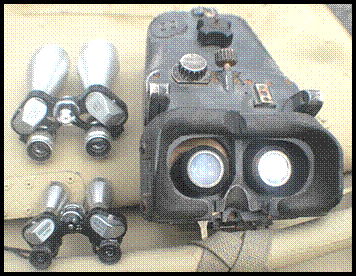
|
More binoculars including miniature binoculars that have exactly the same 12x power or magnification. Counterclockwise from lower left: Japanese civilian market Super Zenith 12x25 CF; WWII German Military 12x40 binoculars normally attached to Flak and Artillery Range Finding units; Japanese civilian market Lieberman & Gortz (UK brand of importer Headquarter & Supply)12x50 CF binoculars. All binoculars are the same 12 power magnification . All binoculars collection of Mark Ohno |


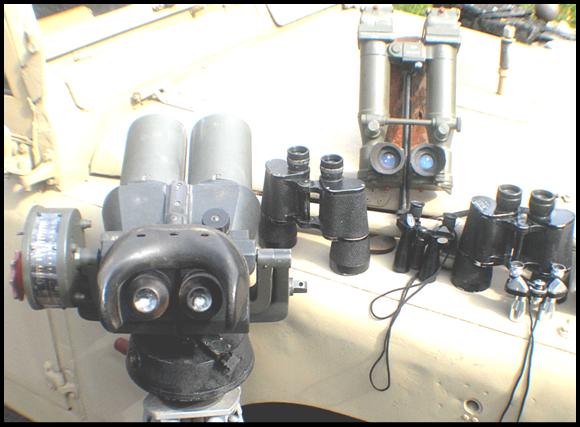
|
More binoculars including miniature binoculars that have exactly the same 10x power or magnification. Front Row Left to right: WWII German military Flakernrohr 10x80 antiaircraft binoculars with CXN code for E. Busch Rathenow with internal filters and with proper cradle and turntable; WWII German Dienstglas military 10x50 BEH code /E. Leitz binoculars; Japanese civilian market TOA Optical Co. 10x20 CF binoculars; WWII German Dienstglas military 10x50 BLC code/Zeiss binoculars; Japanese civilian market Super Zenith 10x20 CF binoculars; Second Row : British Military No 2 Mk 1 AFV (Armored Fighting Vehicle) 10 x 40 periscope binoculars. All binoculars are the same 10 power magnification. Alle Ferngläser sind die gleichen 10-facher Vergrößerung. Toutes les jumelles sont les mêmes 10 grossissement. Все бинокли же увеличение 10 мощность. すべての双眼鏡は、同じ 10 倍 の拡大である. Alla kikare är samma 10 power förstoring. Todos los binoculares son la misma ampliación de potencia 10. All binoculars collection of Mark Ohno |


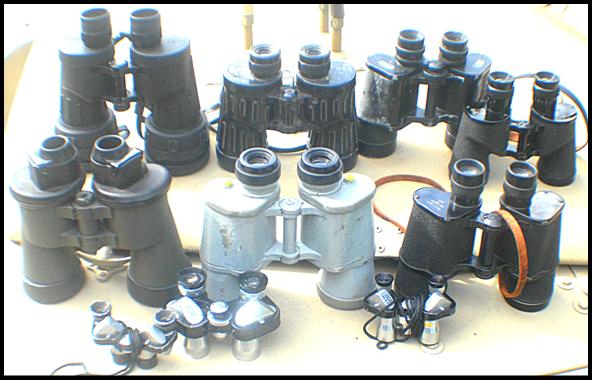

|
Are Miniature Japanese Binoculars Radioactive ? Sind Miniatur Japanische Ferngläser Radioaktiv? Les Jumelles Japonaises Sont-elles Radioactives? Являются ли миниатюрные японские бинокли радиоактивными? 小型 の日本の双眼鏡は放射性物質ですか? Är Miniatyr Japanska Kikare Radioaktiva? Zijn Miniatuur Japanse Verrekijkers Radioactief? Sono binocoli giapponesi in Miniatura radioattivi? |
|
In the best traditions of those supermarket tabloid stories ( ALIENS ATE ELVIS’S ALBINO LOVE CHILD ) designed to attract your attention... (Good analysis of this strategy is the Kissmetrics Blog) since these Japanese miniature binoculars were produced in significant numbers in the 1950’s and 1960’s it might seem surprising that I have never been able to find any of them branded “Atomic”, the way many US consumer items were in the 1950’s. Of course Japan was the only country to ever have nuclear weapons used against it, in 1945 and largely as a test to see how different nuclear bomb configurations actually worked against civilian targets and topography, and with the cities of Hiroshima & Nagasaki specifically chosen for not already having pesky preexisting bomb damage which might confuse the photographic measured analysis of the post nuclear blast damage radius, rather than for other military or strategic reason. Maybe explains lack of Japanese enthusiasm for the “Atomic” brand. Anyway, given that we actually have more radioactive stuff laying around our houses than people think, I thought it might be fun to see if any miniature binoculars (and other things around the house) were radioactive by using a reasonably sensitive 1970’s Soviet military DP-5B ( ДП-5Б) radioactive contamination device (geiger counter). It is the same model used in the aftermath of the Chernobyl nuclear plant meltdown of 1986, though these are now considered obsolete. ( I also have a Russian pocket digital meter for measuring exposure in radioactive spots). The clicking of these devices have been likened to cackling death ! (with some justification). If you have binoculars and the whole idea of radioactive miniature binoculars gets you all upset ...well then just pack them up and ship them to me and to this online museum! (only half kidding). Lets indulge in what the science finds... |
|
World War II US marching compass ? RADIOACTIVE? YES IT IS ! Nearly 3 on the x1 setting so a robust nearly 3mR/hr radioactivity. Radium is in the luminescent radium paint on the pointer and dial markings. Many if not most of the women workers (radium girls) who hand painted this stuff on watches, clocks, compasses and aircraft instruments in the first half of the 20th century became sick or died from it, probably including the person who painted this compass. The inventor of radium paint, Dr. Von Sochocky, also died of radium poisoning. All these workers before 1950 licked their brushes to keep them highly pointed, and so they were effectively eating lots of radioactive radium 226, and they tended to get disfiguring radium jaw/mandible necrosis, bone tumors and other cancers as a direct result. Important lesson you hadn’t thought about? Eating radium on a daily basis is not that good for your health or life expectancy! Some of the girls also regularly painted their lips or eyelashes with the glow in the dark stuff. It seemed great harmless fun at the time... But wasn’t. |
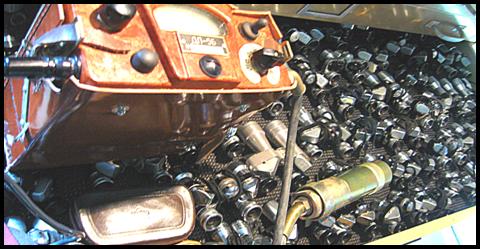
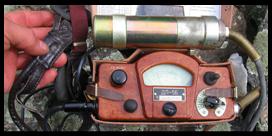
|
Soviet military DP-5B ( ДП-5Б) radioactive contamination device (geiger counter or radiac meter) for beta and gamma radiation. |
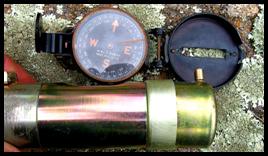
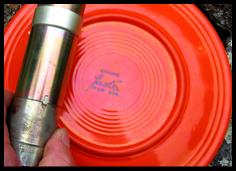
|
Pre-war US Fiesta red/orange dinnerware ? RADIOACTIVE? YES IT IS ! But only around .75 mR/hr, so I guess they were already being rather stingy on the uranium ore for my ca 1940-1943 plate. Uranium 238 is in the uranium oxide glaze, with a pretty impressive 4.68 billion year half life. Some Fiesta plates can have as much as 4.5 grams of uranium/ 20% by weight and can emit as much as 3-19 mR/hr. In 1943 the US Govt apparently grabbed all the uranium ore that Fiesta maker Homer Laughlin had in stock, and diverted it all to make atomic bombs. The Laughlin company made radioactive plates from 1936-1943, and then non radioactive plates with depleted uranium from the 1950’s–1972. Millions of people ate off them. But it didn’t tend to kill off Laughlin’s workers as far as I heard, and so it was presumably not particularly toxic in terms of the manufacturing process, or for eating food from. |
|
Post war Japanese miniature binoculars ? Radioactive? No, I couldn’t find any sign of any radioactivity on mine! But the thought is NOT as far fetched as it might sound. Some lens makers intentionally used thorium dioxide ThO2 to create thoriated glass (up to 40% of the glass content) to increase the refractive index of the lens. It can result in radiation of as much as a robust 10mR/hr at the lens surface. This practice was not that uncommon for camera lenses from the 1960’s to the 1970’s and thorium also had some use as a glass surface coating to reduce glare. (And thorium 232 is currently used as fuel in some nuclear reactors). Use of thorium on binoculars lenses is apparently known, but is not common. And while I did scan some of my binoculars I didn’t find any radioactive lenses on my miniature or full size binoculars before I got bored with it. So unfortunately I guess we can’t really convince anybody to send their binoculars to the collection because they think they are probably radioactive ???... |
|
Russian Strontium 90 instrument test strip ? RADIOACTIVE? YES IT IS ! Just over .75 on the x10 setting, so it is measuring a bit over 7.5 mR/hr. radioactivity. Strontium was commercially used in the CRT/ cathode ray tube in those boxy TVs that everybody had prior to the more recent LCD/LED/plasma flat screen TVs. Made for unhealthy TV viewing ?? Or maybe was the sitting watching and eating junk food? |

|
“Vaseline glass” or “Uranium” green glass child’s marbles ? RADIOACTIVE? YES THEY ARE ! But these reasonably modern marbles are rather wimpy with only about 0.4 mR/hr. radioactivity. I wonder if any schools have written rules against kids bringing radioactive marbles to class? |
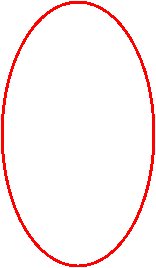
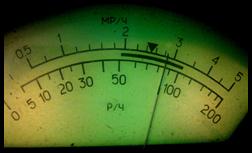

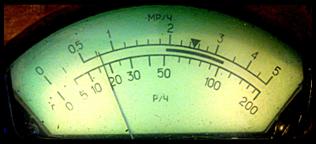

|
Placing these radioactive numbers in context? Measurement is mR/hr (1/1000 rem/roentgen per hour.) In the US there is a slow change over to the European standard measure of sievert (SI), but that change is embraced in the US just about as unenthusiastically as is the all pervasive refusal to use metric measurements such as kilograms and liters as measurements. (except embraced for illegal drugs and liter soda bottles). A repetitive cumulative annual dose of 100 mR of radiation is considered unhealthy. I understand the U.S. postal service is perfectly happy with people mailing radioactive packages of .5mR/hr measured at the package surface. |
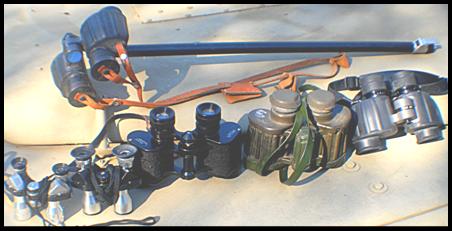
|
More binoculars including miniature binoculars that have exactly the same 8x power or magnification. First Row Left to Right : Japanese civilian market Perl 8x20 CF binoculars; civilian market Minox 8x20 CF binoculars; British civilian market Wray Raylux 8x30 CF binoculars; Hensoldt German army 8x30 CF rubber armored binoculars; Leica brand (Kern factory) Swiss military 8x30 CF rubber armored binoculars with graticule and exceptionally early production serial number of 171; Second Row Leica brand (Kern factory) Swiss military 8x30 CF rubber armored binoculars with ranging graticule and eternal filters, covers, and monopod. All binoculars are the same 8 power magnification. Alle Ferngläser sind die gleichen 8-facher Vergrößerung. Toutes les jumelles sont les mêmes 8 grossissement. Все бинокли же увеличение 8 мощность. すべての双眼鏡は、同じ 8 倍 の拡大である. Alla kikare är samma 8 power förstoring. Todos los binoculares son la misma ampliación de potencia 8. All binoculars collection of Mark Ohno |

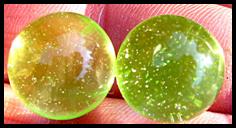
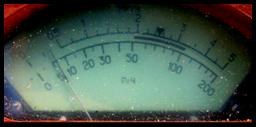
|
“Vaseline glass” or “Uranium” glass child’s miniature tea or eating dish ? RADIOACTIVE? YES IT IS! That uranium oxide diuranate of up to 2% by weight gives it that retro era eerie fluorescent glow under a black light (UV-A light) which everybody loves. Does the “PLENTY” on the dish mean “Plenty of Uranium” for those little tykes? Perhaps… Or maybe they should have named it “SOME” as this one is only a wimpy 0.6 mR/hr radioactive output. |
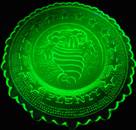
|
A Test of the Importance the Brain Places on Visual Perception and Identification. Ein Test der Bedeutung des Gehirns für die Visuelle Wahrnehmung und Identifikation. Un Test de l'importance du Cerveau sur la Perception Visuelle et l'identification. Тест важности места мозга на визуальном восприятии и идентификации. Wtt test av den Viki Hjärnan Lägger på Visuell Uppfattning och Identifiering. Una Prueba de la Importancia que el Cerebro tiene en la Percepción e Identificación Visual. Un test dell'importanza che il Cervello Pone Sulla Percezione e L'identificazione Visive. |
|
I postulate that people’s reactions and interactions with binoculars and all the resulting associated behaviors are related to the importance that the brain places on visual identification. This is probably part of the visual identification component of the cognitive process of the fight or flight response. I can demonstrate the inherent importance we place on visual identification. How many people’s faces or images of people’s faces do you think the average person has viewed directly or through media? It has to be millions, right? We simply do not commit to memory any of the things we see in the millions that we do not place some form of high priority on for identification. Take my fun challenge! I have artificially placed miniature binoculars in front of 20 faces of people you never met. But I bet you can recognize most of them even though the faces are partially obscured (the images are most relevant to North America/Europe in terms of cultural exposure and to middle aged and older people rather than people in their teens). My point is that if visual identification carries both a conscious and unconscious high priority, then it makes perfect sense that we will probably have a conscious and unconscious affinity for devices like binoculars that enhance our natural abilities in that regard. |
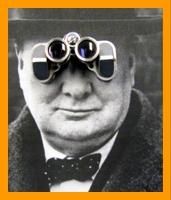
|
1 |
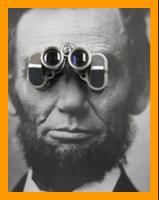
|
2 |
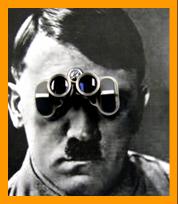
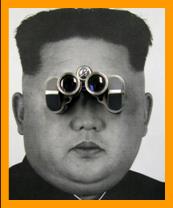
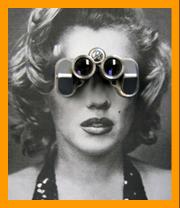
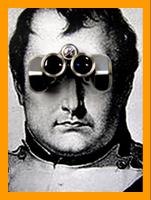
|
3 |
|
4 |
|
5 |
|
6 |
|
7 |
|
8 |
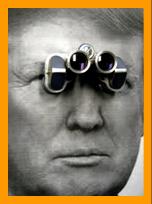
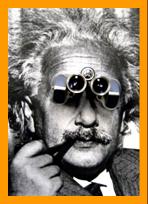
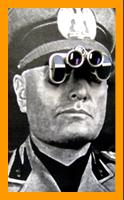
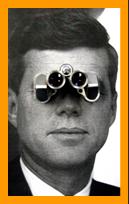
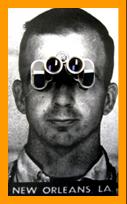
|
9 |
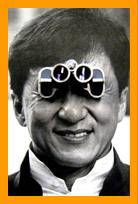
|
11 |
|
12 |
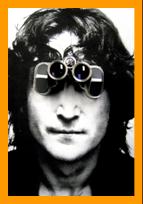
|
13 |
|
14 |
|
15 |
|
16 |
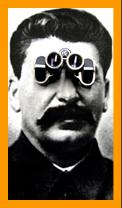
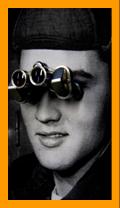
|
ANSWERS 1. WINSTON CHURCHILL; 2. ABRAHAM LINCOLN; 3. ADOLPH HITLER; 4. MARILYNN MONROE; 5. KIM JUNG-UN; 6. PRINCESS DIANA; 7. NAPOLIAN BONAPARTE; 8. MICHAEL JACKSON; 9. BENITIO MUSSOLINI; 10. FIDEL CASTRO; 11. JOHN KENNEDY; 12. LEE HARVEY OSWALD; 13. JOHN LENNON; 14. DONALD TRUMP; 15. ALBERT EINSTEIN; 16. JACKIE CHAN; 17. BRUCE LEE 18. HUMPHREY BOGART; 19. JOSEPH STALIN; 20. ELVIS PRESLEY |
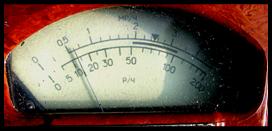
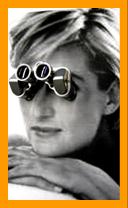
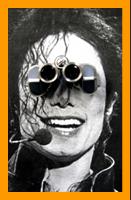
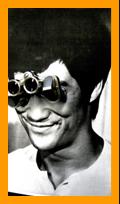
|
17 |
|
19 |
|
20 |
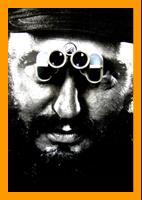
|
10 |
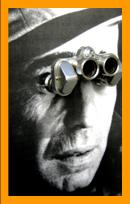
|
18 |
|
8 |
|
6 |
|
More Examples of How binoculars Might Not Be What They Seem. Weitere Beispiele wie Ferngläser Nicht Sein Könnten, was sie Scheinen. Plus D'exemples de la Façon dont les Jumelles Pourraient ne pas être ce qu'elles Semblent être. 双眼鏡 の見え方の例 . Больше примеров того, как бинокль может не быть тем, что они видят. Fler Exempel på hur Kikare inte Skulle Vara Vad de Ser. Meer Voorbeelden van Hoe een Verrekijker Niet Kan Zijn Wat ze Lijken. Más Ejemplos de Cómo los Binoculares Podrían no Ser lo que Parecen. Altri Esempi di Come i Binocoli Potrebbero non Essere Ciò Che Sembrano. |
|
Lets say you have two miniature Japanese binoculars, and they have brand names on them, and the brand names are the same, and so you assume they must be related (common importer or brand owner or exporter or distributor or manufacturer). Right? Well no... not necessarily. The fact is that protection for a brand (such as a trademark) is only for the country where it is registered, and only for the time period when the registration is actively renewed. And there really is no protection for a brand name used casually without a trademark. And a trademark may be a word in a particular typeface or incorporated into a design such that the same word used in another style is not an infringement. So someone else using the same word as a brand on a similar item may be doing so in a time period or in a place where there is no infringement, or using an unprotected way or design, or even if it is a technical infringement there may be nobody to effectively object for some reason. In any case if the name looks different in appearance and of a different time period or market or distribution, it may be unrelated. |
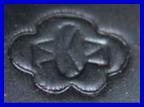
|
“ NIKKO ” marked/branded binoculars with “ K ” logo marking indicating manufacture by contract manufacturer Omori Sogo Kogaku and with characteristics suggesting manufacture in the 1970’s or perhaps late 1960’s. Omori Sogo marked their contract produced binoculars with whatever name an importer wanted, and presumably some importer wanted “ NIKKO ”. But these can be presumed to have absolutely nothing to do with the earlier Nippon Kogaku brand “ NIKKO ”, despite any confusing or suggestive similarity. |
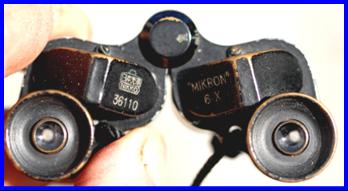
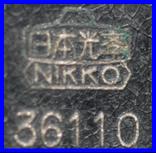
|
“ NIKKO ” and “ MIKRON ” marked/branded binoculars made by Nippon Kogaku KK and with the Nippon Kogaku “ NIKKO ” 2nd pattern logotype. These are of prewar manufacture. The Nikko logotype was not used after 1949, according to Nippon Kogaku and Nikon historical sources, and including period documentation by Nippon Kogaku itself, and the Nikko logo was officially replaced by a “Nippon Kogaku Tokyo” logo in 1950. Always a significant manufacturer, Nippon Kogaku/Nikon always had reasonably formalized distribution channels, especially from the 1960’s onward. |
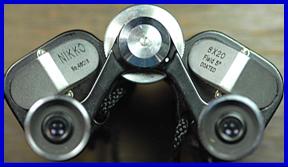
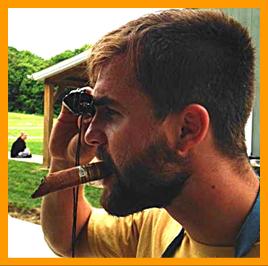
|
Binoculars terminology abbreviations were largely developed through common commercial or marketing usage, rather than being a lexicon developed through planning, and they are therefore much more quirky/ eclectic and subjective. Here are some established abbreviations that you may encounter, either marked on binoculars or their boxes, or mentioned in specifications. |



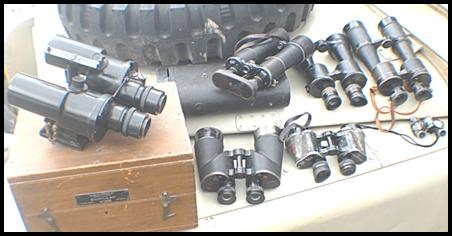
|
More binoculars that are interesting and odd. Top row left to right: Barr & Stroud (Scotland) GK5 military 6x42 Royal Navy ship’s gun director binoculars with internal filters, mount and storage case, probably WWII-1950’s; Carl Zeiss Jena WWI 1917 dated military “Dienstglas” marked DF10x50 binoculars with ocular cover and case; Huet Paris military 1939 dated French Air Force 7x50 binoculars marked “ARMEE DE L’AIR”; Huet Paris military 1939 dated 16x50 French Air Force binoculars marked “ARMEE DE L’AIR”; Bottom row left to right: REL (Research Enterprises Ltd, Canada) WWII military 1945 dated 7x50 binoculars with UK Ministry of Defense broad arrow property marks and “W” waterproofed marking; OIP military 1953 8x38 binoculars marked “A.L.” (Arm é e Luxembourg); and Carl Wetzlar Japanese made Canadian market 10x20 miniature pattern binoculars. All binoculars collection of Mark Ohno |
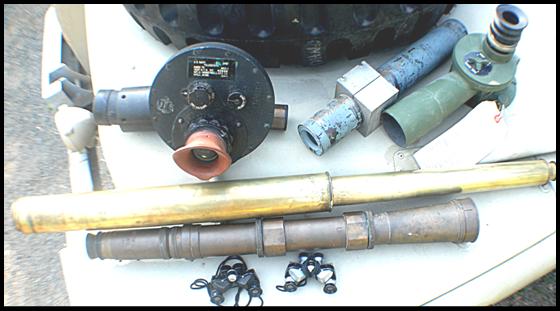
|
Other optics. Front Row left to right: Japanese occupied Japan Hercules 6x15 IF binoculars & Luxor 6x15 IF binoculars; Second Row: USN Model XI Mk 13 US Navy Aircraft gun sight; Third Row: Civilian British turn of the century JJ Messer Day or Night Telescope; Third Row: left to right: USN gun telescope Mk 74 gun sight for US Navy 3 inch dual purpose gun dated 1944 and made by Honeywell; USN MK 89 US Navy gun sight made by Wollensak Optical Co and used on the 90mm and 120mm anti aircraft directors m7,m9, and m19; US Army M17 elbow telescope marked as from the Tobyhanna Army Depot. All collection of Mark Ohno |


|
I’ll use a flimsy pretense to sneak in some interesting non miniature binoculars... |
|
BINOCULARS RESEARCH WEBSITE, NOT FOR PROFIT FERNGLAS-FORSCHUNGS-WEBSITE, NICHT GEWINNORIENTIERT SITE DE RECHERCHE SUR LES JUMELLES, SANS BUT NON LUCRATIF |
|
FOR MILITARY AND NON MINIATURE BINOCULARS SEE THE SECTIONS/PAGES “ OTHER BINOCULARS ” and “ BIG AND SMALL ”. |
|
MARK OHNO ミニチュア双眼鏡 миниатюрные бинокли |


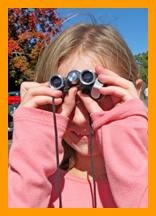
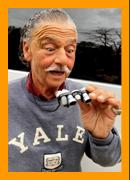

![Text Box: CLICK ON PAGE LINE. CLIQUEZ SUR LA LIGNE DE PAGE. KLICKEN SIE AUF SEITENZEILE. HAGA CLIC EN LÍNEA DE PÁGINA..[ページ行]をクリックします。НАЖМИТЕ НА СТРОКУ СТРАНИЦЫ. ALSO SEE INDEX.](image6934.gif)




